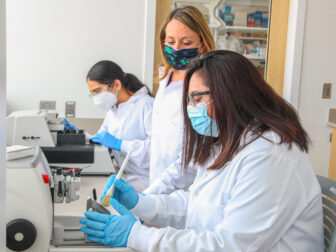Tamanna Islam, MSc

Exploring a New Target for Treating Pulmonary Arterial Hypertension
Summary
Pulmonary arterial hypertension (PAH) is a rare, progressive disease in which the blood vessels in the lungs become narrower, leading to high blood pressure and causing the heart to work harder and become weaker. Without treatment, PAH can be fatal within a year, and even with treatment, only 45% of patients survive beyond three years. In PAH, the blood vessels narrow as their walls thicken due to the abnormal movement of cells into the area. Like a plant sensing and growing toward sunlight, cells can detect and respond to forces in their environment, and in PAH, cells migrate toward stiffer tissue areas. Our research aims to study the mechanisms behind this cell movement in PAH using an organ-on-a-chip model that mimics the physiology and mechanical forces that cells experience in the pulmonary artery. Unraveling the pathways involved in cellular movement in PAH could help uncover new treatment strategies to reverse or inhibit this process, offering hope for better outcomes for patients.
Watch a Q&A with Tamanna
I am incredibly honored to receive a Predoctoral Fellowship in Drug Discovery from the PhRMA Foundation. The Foundation’s support and belief in my project continue to motivate my pursuit of innovative approaches to drug discovery.

